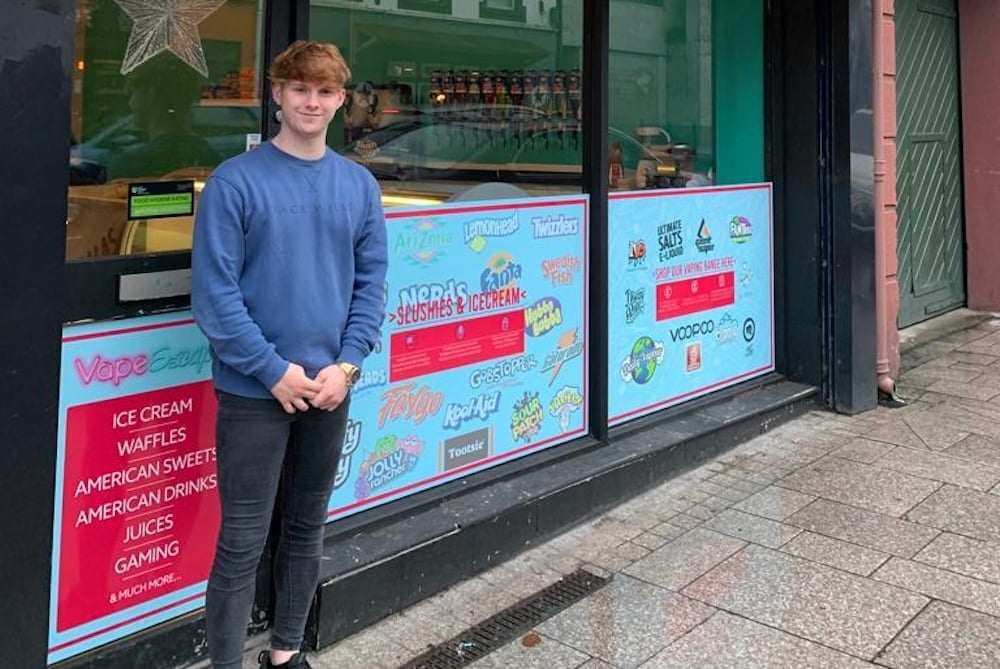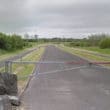
A young entrepreneur from Lurgan – who has in the last four years opened a total of six vape stores across Northern Ireland – has spoken of the impact that new legislation has had on business.
Christopher Matthews launched his first store – Vape Escape – on Upper English Street in Armagh in 2021 and has since then opened a further four stores in Belfast and one in his hometown of Lurgan.
The 24-year-old also supplies stores with stock across Northern Ireland and admits he has had to get his head around the new legislation “pretty quickly”.
The new legislation – which entails a blanket ban on the sale of single-use vapes – came into effect across the UK yesterday (June 1) to primarily combat the environmental damage the products were causing.
According to The Department of Agriculture, Environment and Rural Affairs (DAERA) website, it is estimated that as many as five million single-use vapes are simply thrown in bins or littered every week across the UK, rather than being recycled.
The new restriction aims to reduce the number of vapes going into landfill or discarded as litter, where they can release harmful substances into the environment and endanger wildlife. It will also stop valuable resources such as cobalt, copper and lithium being used in single use devices.
And, while Chris agrees that “it is better for the environment” the ban has changed the landscape of his business and forced him to invest a significant sum this month alone on new stock.
Speaking to Armagh I, Chris explained: “In 2024, disposables were around 70% of the business but that has now changed and a lot of people have moved on to refillable products, mainly for the cost aspect.
“From a financial standpoint this has had quite a big impact. This month alone I’ve had to bring a significant amount of stock in. That was basically replacing vapes to a compliant version and replenishing stock to the compliant versions.”
In preparation for the change, Chris attempted to clear out stock that would be becoming non-compliant by selling it “dirt cheap” but says he is still stuck with a large amount of unsalable product.
And, for the next few weeks he anticipates business to be “slower” – especially in regards to “older” customers – who in his experience were more inclined to use disposables.
Moving forward, he advises customers to be aware of purchasing “non-compliant” devices and refills, explaining that anything on display in petrol stations, supermarkets and vape stores will “most likely” be complaint but warning that anything sold “under the counter” to be indicative of the opposite.
His advice is for customers to visit vape stores where products not only tend to be more affordable but where the staff are also trained to provide “up to date” information and advice about product use and maintenance. Chris also points customers to the MHRA website where more information regarding compliant products can be found.
The young entrepreneur – while adjusting to this new landscape in business – is also attempting to “get ahead” of further planned changes with the introduction of a Vape Tax expected in October 2026.
The tax will see £2.20 charged per 10ml of e-cigarette liquid and Chris anticipates the duty to decimate the sale of nicotine-free liquids.
He said: “Any of the zero nicotine will be dead. When you have say £22 of duty on that before you even buy the product it will just kill it.
“When it happened in Germany, they went from 2,500 vape stores down to 900. They were basically wiped out.
“At the minute I’m just trying to get as many shops opened as I can to sustain it.
“I will have to cut my margins slightly to get the sales but this will impact a lot of people’s cash flows when it comes in.
“I’m ordering liquids in cases of 300 so per flavour you could have an extra £600 in duty before you even get the product.”
And while the current changes and future changes are expected to cause considerable financial instability for business owners like Chris he does see merit in the move away from disposable vaping.





